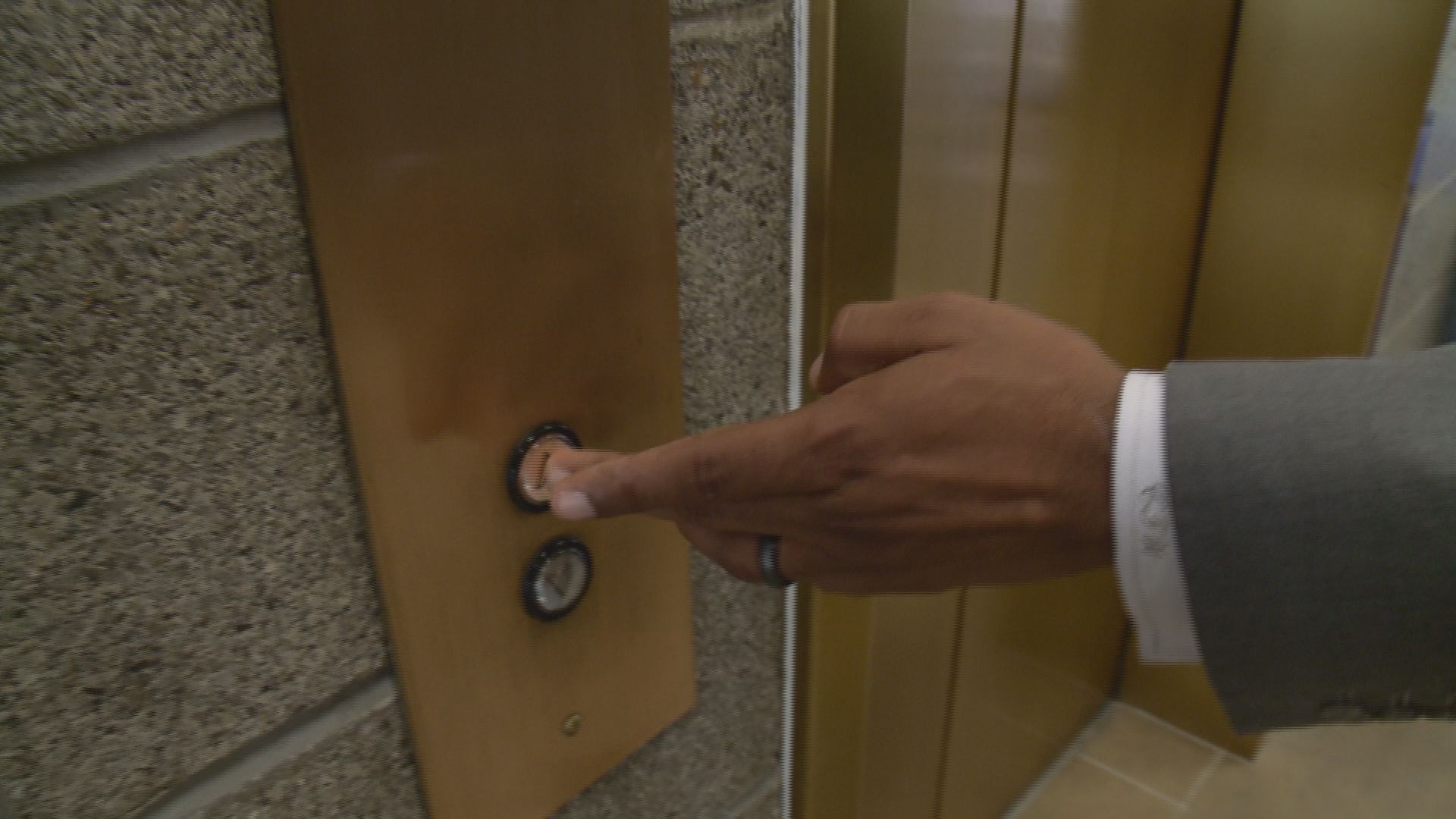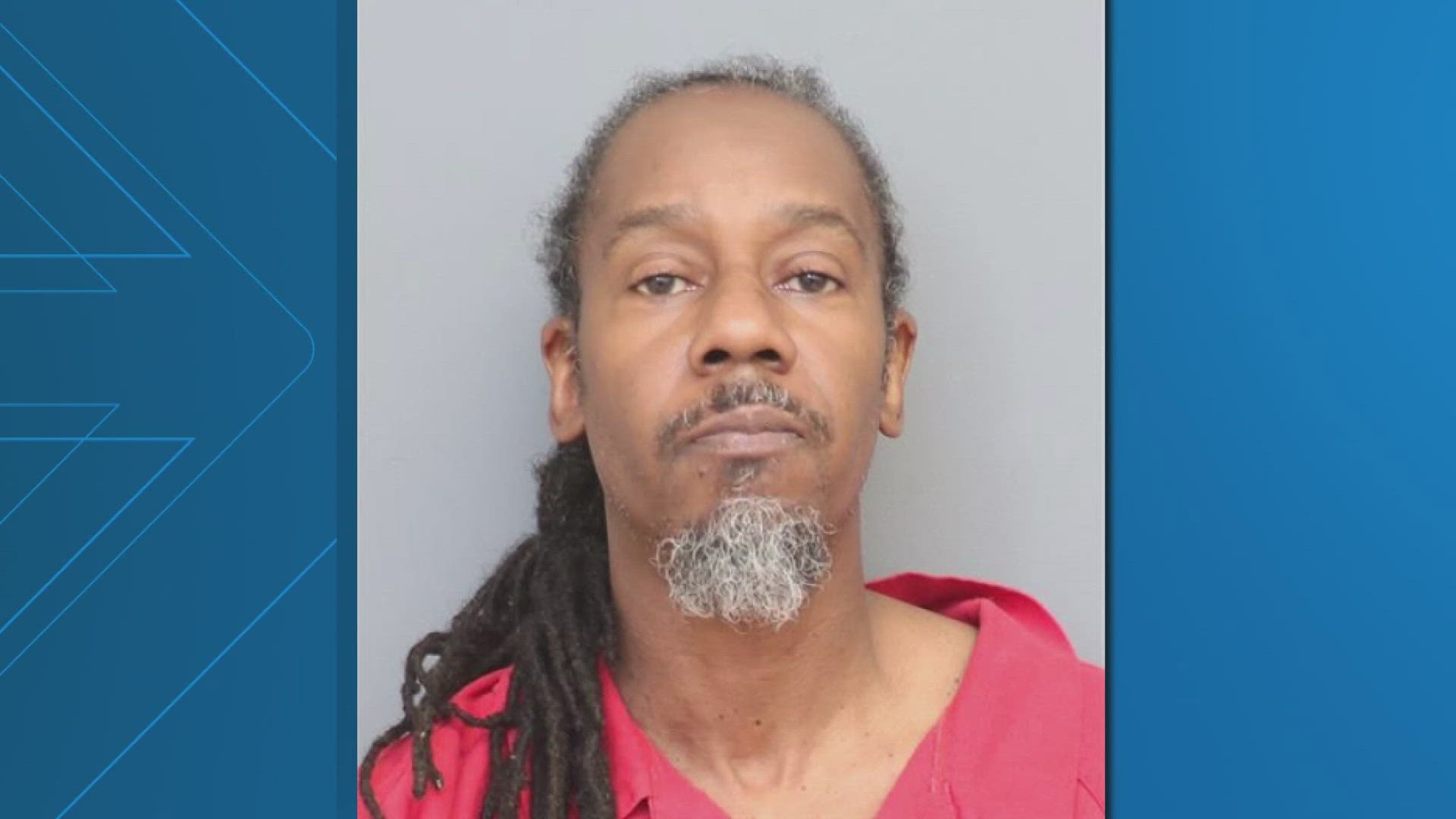Charles County, Maryland Delegate C.T. Wilson said his elevator inspection safety bill would be introduced into the General Assembly on Tuesday.
Delegate Wilson said the bill had been changed since he first spoke with WUSA9. Those changes, he said, have reduced the cost of implementing the bill so that no state money would be required.
The updated legislation would phase in a plan over two to three years whereby all state certified elevator inspectors would be replaced by 3rd party inspectors hired by building owners. Delegate Wilson said he had received assurances from the Maryland Department of Labor, Licensing, and Regulation (DLLR) Secretary Kelly Schulz that her agency would not oppose the bill.
It's the most mundane of tasks at work, riding on an elevator. In Delphine Harriston's case, it led to the most unexpected moment.
"It just stopped. I had to keep telling myself to stay calm. It's okay, stay calm. Your natural reaction is what happens if the cables break?" Harriston said.
Harriston, an administrator with the Montgomery County Council, works at the county building in Rockville. She hopped on the elevator on the sixth floor and was headed to the council chambers when she got stuck.
"I felt the elevator start to go down and then it stopped. My nerves are going, 'Oh no! No!'," she said.
Harriston ended up spending half an hour stuck in the elevator.
State inspectors are in charge of making sure elevators in all of Maryland are in good working order.
However, they do not have to be physically present to sign off on an inspection.
Harriston told WUSA9's Special Assignment Unit she had no idea that was the case. "Yes, I'm surprised. But, if you were inspecting something, you'd have to be there to see it," she told WUSA9's Special Assignment Unit.
Delegate C.T. Wilson believes these non-witness elevator inspections in the state of Maryland are a huge safety issue.
For the past two years, the state delegate has tried to push a bill through the General Assembly that would tighten up the law on how elevators are inspected and certified to be good to go.
"I can't think of any other place where you can go and inspect something without actually physically being present. It makes zero sense," Wilson said.
What's pushing State Delegate Wilson's buttons is a decision made in Annapolis back in 2009.
Annual elevator inspections were required back then, but there was a huge backlog.
So, the Maryland Attorney General decided that state inspectors didn't need to witness the yearly testing of elevators.
Instead, they verified the testing was done by an elevator worker. They did this by checking the paperwork the worker filled out and left in a building's elevator control room.
"Okay, it looks good, and put their name on it, and approve it, even though they have never seen the work that was done," said Dave Geib.
Geib has spent the last 37 years as an elevator mechanic and called the non-witness elevator inspections just a "rubber stamp" process.
"It does present a problem that we have lowered the standard in Maryland for our elevator inspections. It really does," he said.
On the other side of the issue is the commercial and residential building owners, who have a lot of elevators.
"There's no data to support a safety problem on elevators in Maryland,"
Ron Wineholt is with the Apartment and Office Building Association of Metropolitan Washington.
"It's just going to require the inspector to take longer to do his annual inspection as he's standing there as one licensed individual watching the licensed mechanic do his job," he said.
"Just as you wouldn't have a plumbing inspector watch a plumber fix pipes, you wouldn't need a licensed inspector of an elevator watch a mechanic do his job as well," he added.
Wineholt argued the proposed law would take Maryland back to the days of an inspection backlog, which he said would cause more harm than good.
"We think that would slow down the elevator inspections and result in fewer inspections being done every year," Wineholt said.
"It's very important! We all ride elevators!," exclaimed Delphine Harriston.
When WUSA9 asked whether she could get on an elevator and not think about what happened that day in the county building in Rockville, Harriston responded, "No! I'm always thinking about it."
Even Maryland State Delegate C.T. Wilson said he thinks twice before hitting the button of an elevator.
"So, they know what could happen if an elevator malfunctions," he said. Wilson argued that having an inspector witness and elevator inspection is a matter of life or death.
"We put a high priority on safety, and we don't think this legislation would make them more safe," Wineholt said.
The Maryland Department of Labor, Licensing and Regulations is the state agency that checks up on elevators."
The Maryland Department of Labor, Licensing and Regulation is the state agency that checks up on elevators.
DLLR said there were four incidents of people being injured and one person killed while riding an elevator in Maryland between 2010 and 2017.
Building owners have to report elevator injuries to the state. If not, they can be fined $5,000.
The state has collected $0 in fines going back to 2010.
Supporters of the bill said the number of elevator accidents is underreported.


